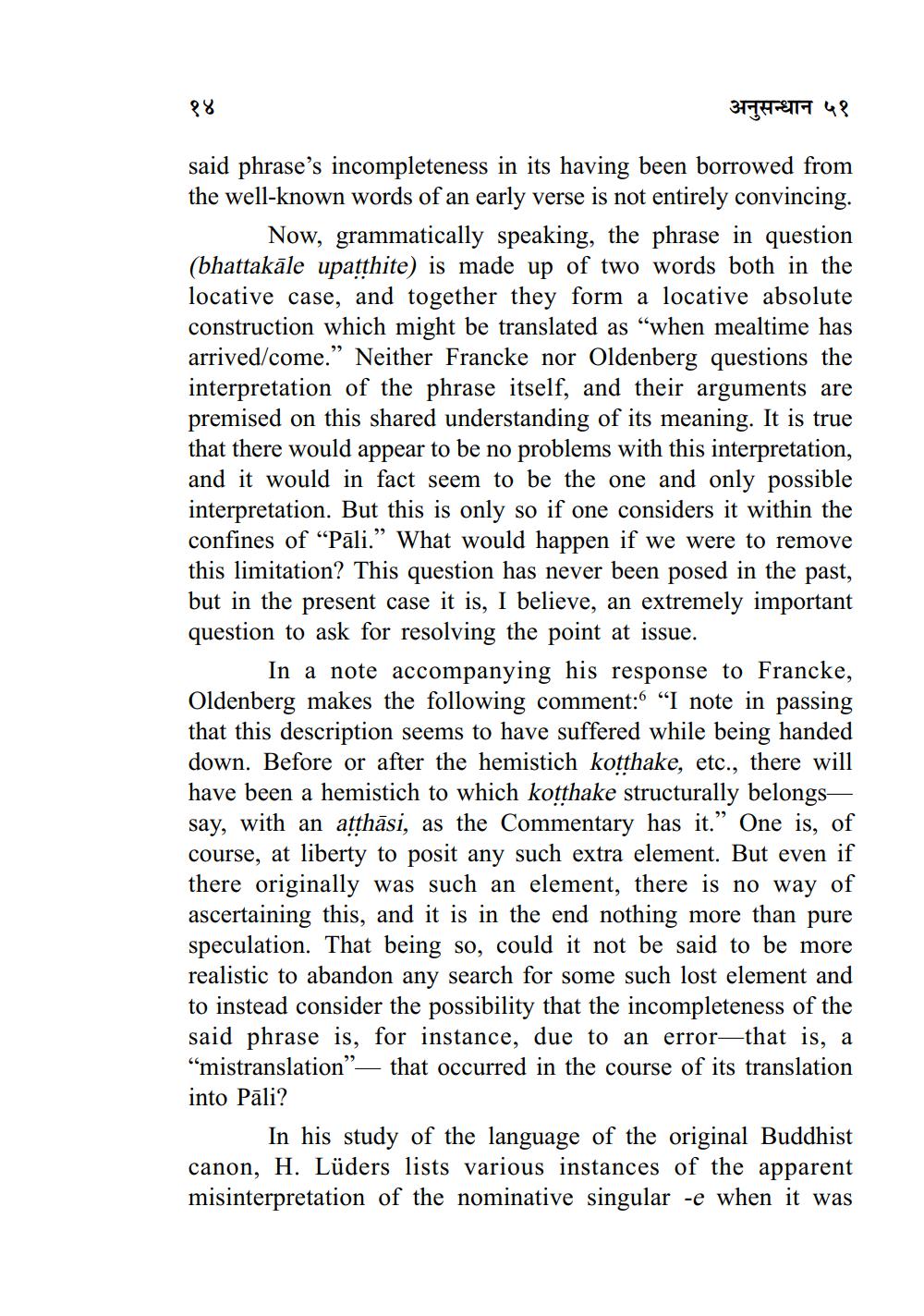Book Title: Bhattkale Upatthite Example of a Mistranslation in Pali Canon Author(s): Yajima Michihiko Publisher: ZZ_Anusandhan View full book textPage 3
________________ १४ अनुसन्धान ५१ said phrase's incompleteness in its having been borrowed from the well-known words of an early verse is not entirely convincing. Now, grammatically speaking, the phrase in question (bhattakāle upatthite) is made up of two words both in the locative case, and together they form a locative absolute construction which might be translated as “when mealtime has arrived/come.” Neither Francke nor Oldenberg questions the interpretation of the phrase itself, and their arguments are premised on this shared understanding of its meaning. It is true that there would appear to be no problems with this interpretation, and it would in fact seem to be the one and only possible interpretation. But this is only so if one considers it within the confines of “Pāli.” What would happen if we were to remove this limitation? This question has never been posed in the past, but in the present case it is, I believe, an extremely important question to ask for resolving the point at issue. In a note accompanying his response to Francke, Oldenberg makes the following comment:6 “I note in passing that this description seems to have suffered while being handed down. Before or after the hemistich kotthake, etc., there will have been a hemistich to which kotthake structurally belongssay, with an atthāsi, as the Commentary has it.” One is, of course, at liberty to posit any such extra element. But even if there originally was such an element, there is no way of ascertaining this, and it is in the end nothing more than pure speculation. That being so, could it not be said to be more realistic to abandon any search for some such lost element and to instead consider the possibility that the incompleteness of the said phrase is, for instance, due to an error—that is, a “mistranslation”— that occurred in the course of its translation into Pali? In his study of the language of the original Buddhist canon, H. Lüders lists various instances of the apparent misinterpretation of the nominative singular -e when it wasPage Navigation
1 2 3 4 5 6 7 8 9 10 11 12
